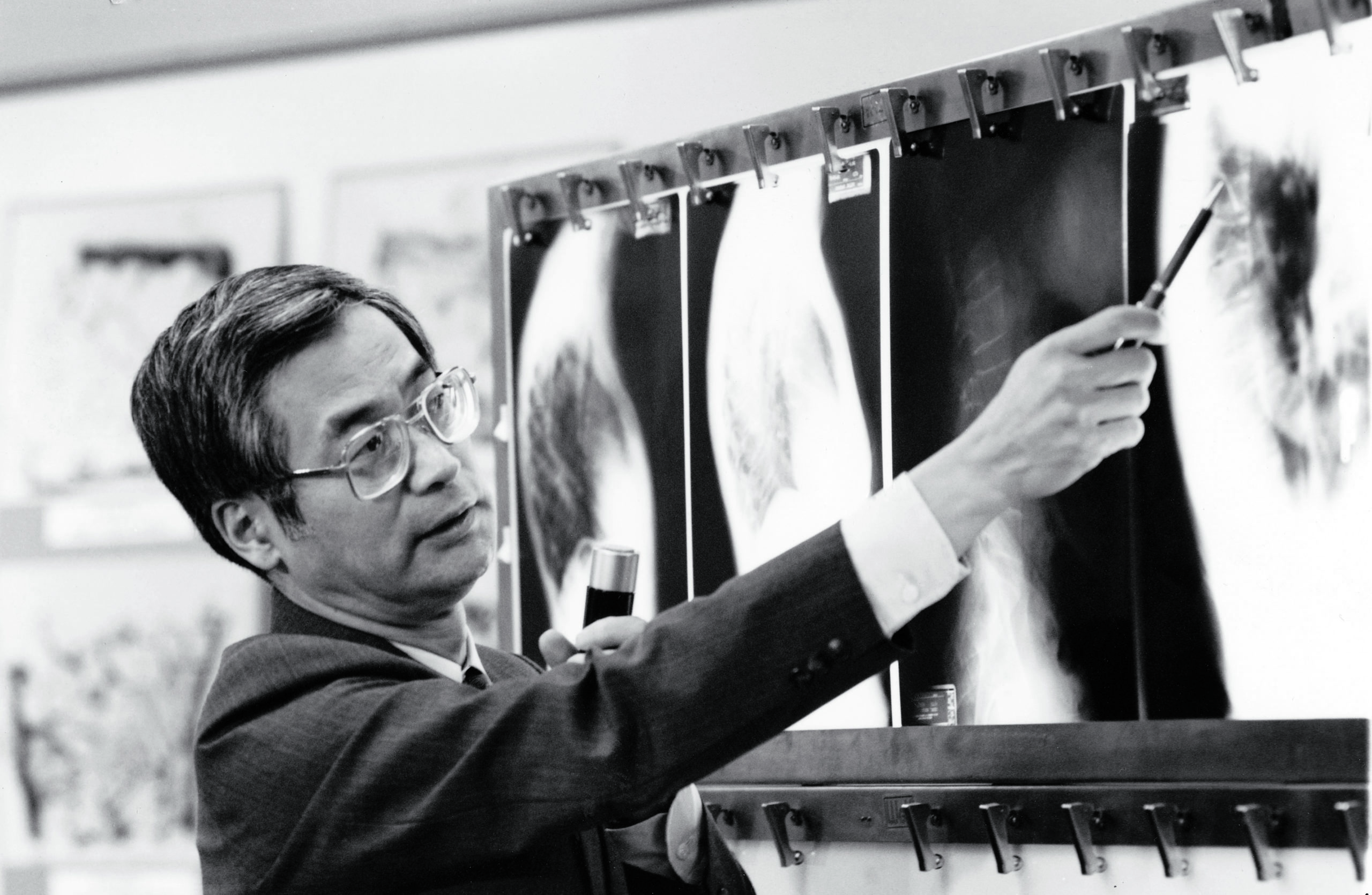
In 1989, UT Southwestern researchers in mineral metabolism, including the world-renowned Charles Pak, M.D., announce results of clinical trials using a new treatment to restore spinal bone mass. The slow-release form of sodium fluoride with calcium citrate — which later becomes known as Citracal™ — is shown to safely reverse the effects of osteoporosis by augmenting bone mass.
In 1994, The General Clinical Research Center (GCRC) at
UT Southwestern celebrated its 20th anniversary as one
of the oldest federally funded clinical research centers in the nation. It has been home to pioneering research in areas such as cholesterol metabolism, diabetes, osteoporosis, hypertension, neurological disorders and space medicine. Dr. Pak went on to serve as principal investigator, a position once held by Donald Seldin, MD.
In n 1998, the Medical Center established the Office of Technology
Development and named Dennis Stone, M.D., as Vice President. At the time, the Medical Center’s annual royalty revenue stream of approximately $10 million was more than 30 percent greater than any other Texas institution.
Notable among the licensing agreements was one with Mission
Pharmacal in San Antonio, makers of Citracal™. Dr. Pak’s discoveries were generating the majority of the revenue because Citracal had become widely recommended to slow the effects of osteoporosis.